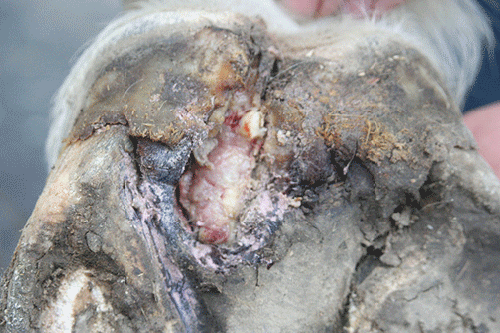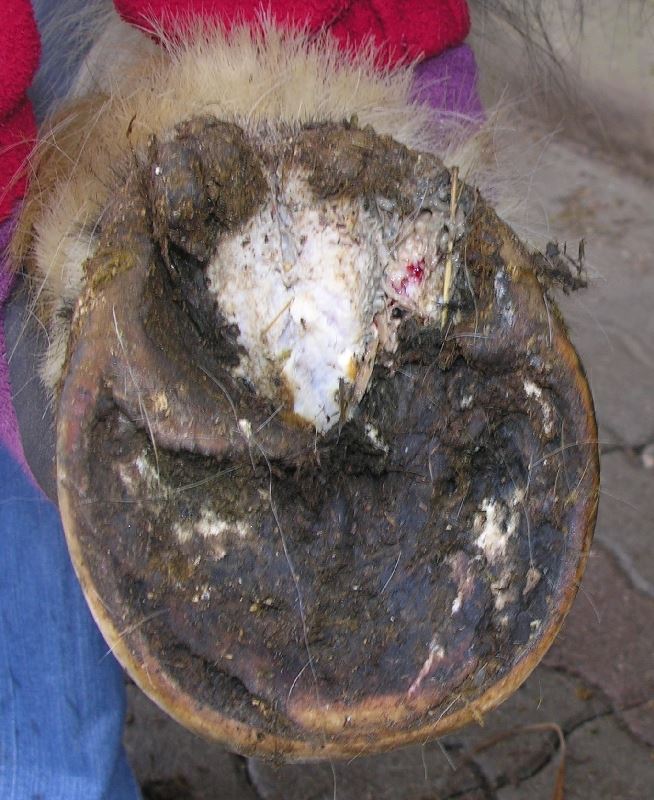While many of us have heard the term “canker,” (as in “canker sores” in people), most may not know how it applies to equines.
Sarah E. Coleman


While the exact bacteria that causes canker is unknown, canker is an infection in the surface tissues of the hoof that causes rapid overgrowth. While it commonly begins in the frog, it can invade the sole, bars and hoof wall.
The down-and-dirty on equine canker:
-can occur in one foot or multiple feet
-common in draft horses, but can be found in any breed
-not always affiliated with wet, unhygienic hoof conditions; many horses diagnosed with canker are extremely well cared for
-while in its early stages, canker may be mistaken for thrush, but there is a growth of tissue in canker (not a loss of it like with thrush)
-initially it may look like a bunch of granulation tissue in the frog that bleeds easily when touched
-it evolves into a cauliflower-like growth
-left untreated it will eventually involve the majority of the hoof
-a horse may be sound when initially diagnosed with canker, but the condition can become quite painful if not addressed immediatelyt
-there is no one effective treatment
-horses that get equine canker have a guarded prognosis for complete recovery.
Diagnosis and Treatment

A canker diagnosis is typically made based on the appearance of the growth in the hoof, but a biopsy can also be performed. Unfortunately, there is no hard-and-fast remedy to treating canker, but several principles seem to work best. These include thorough debridement of the area (how this is accomplished is less important) to the outer edges, and methodical application of topical treatment.
This typically includes cleaning the affected area with an antiseptic solution, applying preferred topical ointments (which vary by vet), then keeping the wound clean and dry until the area begins to heal. Many vets will use a mixture of crushed antibiotics (like metronidazole and tetracycline) directly on the canker.
It’s imperative that affected horses be kept in a dry area while the canker heals. The application of hospital plates can be used, but it can be difficult to keep the hoof as dry as necessary with these plates on. Systemic antibiotics can be prescribed, but their use has not been thoroughly evaluated.
Care of canker in horses can take weeks to months, but once it is cured, it is unlikely to recur.
